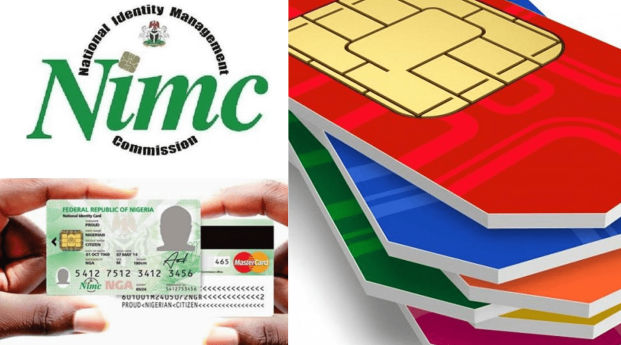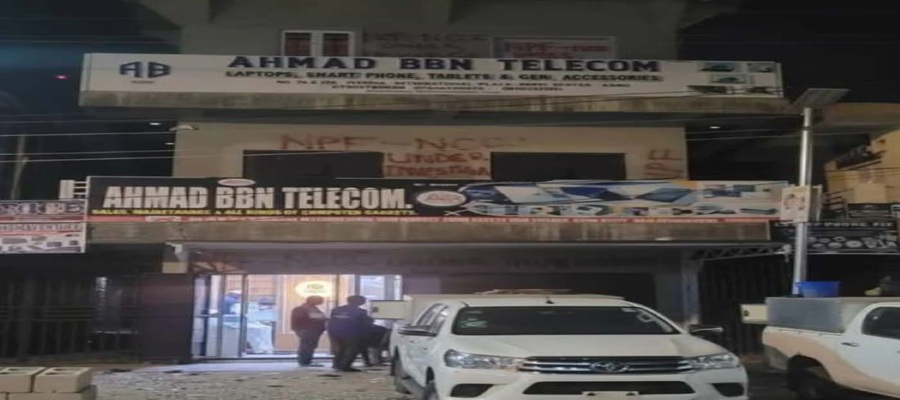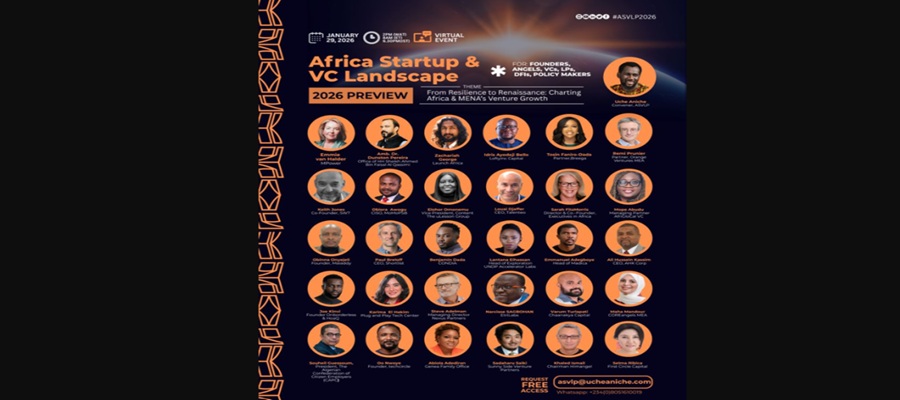Telecom
NIN-SIM Linkage: Subscribers Complain of Barred Phone Lines

Some telecommunications subscribers on Wednesday expressed displeasure over the barring of their lines by telcos despite having linked their National Identification Numbers (NIN) with their SIM cards.

The subscribers expressed their displeasure in separate interviews with the News Agency of Nigeria in Lagos.
NAN reports that telecommunications (Telcos) operators in Nigeria, including MTN, Airtel, and Globacom, among others, had been directed by their regulatory body, the Nigerian Communications Commission (NCC) to implement full network barring on all phone lines which subscribers had not submitted their NINs and those without verified NINs by February 28, 2024.
The NCC said further that NINs that had been submitted but not verified, such lines were to be barred on or before March 29, 2024, the same as in cases where five or more lines are linked to an unverified NIN.
Similarly, where less than five lines are linked to an unverified NIN, such lines are to be barred on or before April 15, 2024.
In a visit by NAN in Lagos on Tuesday evening to some of the telcos customer service centres, subscribers were complaining about barred lines at all the telcos outlets, but more at the MTN outlets.
The subscribers were displeased that their lines had been barred from making calls even before the February 28 deadline.
Some of them insisted that they had already linked their NINs to their SIM cards as directed by the NCC, so they were surprised that their lines were still barred.
A businessman, Mr. Marcel Okoh, said that a message was sent to his MTN line at the weekend, which he did not take seriously because he had done his NIN-SIM linkage.
Okoh said that two days after the message was sent, he noticed that his SIM had been disconnected, and he could no longer recharge or make calls with his phone.
“The disconnection is uncalled for because I have done what is needed, and I should have been given time to make enquiries.
Similarly, a Fashion Designer, Aisha Alao, who also uses an MTN line, said that she was disconnected by the telco without any notice.
Alao said that it was when she got to one of the MTN outlets that the agents explained to her that she needed to do a NIN-SIM linkage.
Also speaking with NAN, a retired Teacher, Mrs Veronica Maduabunechukwu, said that a disconnection notice was sent to her by Airtel despite having done her NIN-SIM linkage.
“The line has not been disconnected, and I see no reason why it should be barred.
Another MTN subscriber, Mrs Chinenye Agbanusi, said that she had done her NIN-SIM linkage as far back as 2020.
Agbanusi said that she was not pleased with MTN for barring her line after following due process.
She added that Telco should upgrade its systems to avoid recurring issues of barring customers who had already done what was needed.
A Globacom subscriber, Miss Kanyinsola Oje, said that a notice to link her SIM to NIN to avoid disconnection was also sent to her.
She noted that some days after the notice, her line was barred.
However, during the survey, Miss Nkechi, an Agent in one of the Airtel outlets in Ketu, said that subscribers had been coming to the centre to make complaints about their SIM being disconnected.
Similarly, Olumide, a Globacom Agent in Ketu, also confirmed that subscribers had been coming to the outlet to make complaints about their lines being barred since December 2023.
According to him, most of the subscribers insisted that they had done the NIN-SIM linkage before, but were currently having issues.
Olumide said, “The reason for the disconnection could be that the name the subscriber used in registering for their NIN is different from what they used to register their SIM.
“Another issue could be that the line was reassigned to another subscriber, so the name on the SIM could still be the name of the previous owner.
Reacting to the subscribers’ complaints, Mr Funsho Aina, the Senior Manager, External relations, MTN, said that most of the lines that were barred were because no data were found on the lines.
Aina said that it was possible that these subscribers had done the NIN-SIM linkage, but the data filed for NIN might not be the same as what they registered for their SIM.
He said that a discrepancy in data filed for NIN and for SIM could affect its collation.
“Take, for instance, I register my SIM with Funsho, and in registering for the NIN, I use Olufunsho, which is also my name.
“Even if I do the NIN-SIM linkage, in collating by the telco, the technology might not be able to link the names to one person and the line would be disconnected until the discrepancy is corrected,” he said.
Aina, however, said to correct such discrepancies and be reconnected, there were self-help steps that could be taken.
He urged subscribers to go to the portal: https://nin.mtn.ng/nin to create a Virtual NIN (VNIN).
“You can also dial *996*3# on your mobile phone.
“Select option three for Virtual NIN, Enter your NIN to proceed, then enter ‘109071’ as your Enterprise ID.
“Or alternatively, dial *346*3*your 11-digit NIN*109071# to create a VNIN,” Aina said.
The MTN official also explained that it seemed as if MTN subscribers were more affected because MTN had a larger number of subscribers than the other telcos.
NAN
Telecom
Amazon Axes 16,000 Jobs Worldwide in Major Restructuring Push

Amazon, the world’s largest e-commerce and cloud computing powerhouse, announced plans Wednesday to eliminate 16,000 jobs globally, escalating a restructuring drive first flagged in October with 14,000 earlier cuts.

Amazon
The layoffs, hitting corporate ranks across multiple divisions, aim to slash management layers, boost accountability, and dismantle bureaucracy, Senior Vice President Beth Galetti stated in an internal memo. Despite booming holiday sales and $21 billion quarterly profits on $180 billion revenue, Amazon seeks to redirect resources toward massive artificial intelligence investments amid slower post-pandemic growth and rising costs.
Galetti explained that while some teams finalised October adjustments, others required extended reviews, pushing total reductions toward 30,000—the firm’s largest ever. CEO Andy Jassy, pursuing leaner operations since 2021, has long signalled AI’s role in shrinking white-collar headcount, with corporate staff—about 350,000 of 1.5 million total—bearing the brunt, sparing warehouses.
The move mirrors Big Tech’s broader belt-tightening as firms recalibrate pandemic-era hiring binges against economic headwinds, AI disruption, and policy uncertainties under President Donald Trump. Amazon’s October cuts struck 2,000 in Washington state—including engineers, recruiters, analysts—and 1,500 in California, with fresh impacts undisclosed by location.
Jassy emphasised culture over pure finances in prior notes, blaming rapid expansion for excess layers after workforce doubling during COVID lockdowns fueled online shopping surges. Recent U.S. hiring slowdowns—to 50,000 jobs in December—underscore corporate caution amid AI’s job-shifting potential and tariff worries.
Analysts note the cuts free capital for AI dominance, pitting Amazon against rivals in generative tools despite no immediate financial distress. Ex-workers have decried impersonal processes, often learning via media leaks, highlighting tensions in Earth’s “best employer” shedding talent en masse.
As tech pivots to AI frontiers, Amazon’s aggressive pruning signals a new era: fewer bodies, sharper focus, betting machine smarts eclipse human scale in the post-boom landscape.
Telecom
Police Bust ₦7.7bn Telecom Hack Gang, Seize 400 Laptops in Massive Fraud Swoop

Operatives of the Nigeria Police Force smashed a sophisticated cybercrime ring Wednesday, arresting six suspects accused of hacking a major telecommunications company and looting airtime and mobile data worth a staggering N7.7 billion.

The Force Public Relations Officer, CSP Benjamin Hundeyin, disclosed in a statement that the suspects breached the telecom giant’s core billing and payment systems by compromising internal staff login credentials, enabling them to siphon off vast quantities of airtime and data for illicit resale.
Named in the arrests are Ahmad Bala, Karibu Mohammed Shehu, Umar Habib, Obinna Ananaba, Ibrahim Shehu, and Masa’ud Sa’ad – a mix of northern and southern names hinting at a cross-regional fraud network that preyed on Nigeria’s digital backbone.
Police swooped on the gang’s hideouts in coordinated raids across Kano and Katsina states in October 2025, with a final takedown in the Federal Capital Territory, recovering two mini-plazas masquerading as legitimate retail outlets stocked with over 400 laptops, about 1,000 mobile phones, and a Toyota vehicle.
Investigators also froze substantial sums in the suspects’ bank accounts, tracing the dirty money trail back to the diverted resources that left the unnamed telecom firm reeling from unauthorised activities reported in a desperate petition.
The breach, described by police as a “calculated assault on critical infrastructure,” allowed the hackers to manipulate the company’s systems undetected for months, offloading billions in airtime and data bundles through underground channels and raking in illicit profits.
Hundeyin vowed that the net was widening, with forensic experts combing through digital footprints and financial ledgers to expose any remaining accomplices or beneficiaries in what he called “one of the largest telecom heists in recent Nigerian history.”
Inspector-General of Police, IGP Kayode Adeolu Egbetokun, praised the crack team from the National Cybercrime Centre for their “relentless professionalism,” urging telecom firms to bolster cybersecurity amid a surge in digital predation.
As the suspects cool their heels awaiting arraignment under the Cybercrimes (Prohibition, Prevention) Act, the case underscores Nigeria’s growing battle against tech-savvy fraudsters targeting the N1.7 trillion telecom sector that powers millions of daily transactions.
Industry watchers warn that such breaches erode investor confidence and hike operational costs, ultimately passed onto consumers already grappling with soaring data tariffs in Africa’s most populous nation
Telecom
ASVLP 2026: Africa, MENA VCs Gear Up as Tech Funding Hits $4.1bn Rebound

As Africa and MENA’s startup ecosystems transition from post-correction resilience into a new phase of disciplined growth, the Africa Startup & VC Landscape Preview (ASVLP 2026) will convene leading founders, investors, policymakers, and ecosystem builders on January 29, 2026, for its second annual, agenda-setting virtual forum.

Following a challenging global venture cycle, 2025 marked a notable rebound across the African ecosystem, with startups raising an estimated $3.2–$3.3 billion over the full year.
The recovery was accompanied by significant structural shifts: Kenya emerged as the leading destination among Africa’s “Big Four” markets for the first time, while Nigeria recorded a year-on-year funding decline, reflecting changing investor preferences, macroeconomic pressures, and a broader recalibration toward capital efficiency and sustainability.
Sectorally, fintech remained the most funded vertical, while climate & energy, AI-enabled solutions, healthtech, and infrastructure-adjacent businesses gained increasing attention. Across Africa and MENA, development finance institutions (DFIs) and family offices played a more pronounced role in anchoring funds, deploying catalytic capital, and supporting blended-finance structures, reshaping how early-stage and growth capital is mobilized.
ASVLP 2026 is designed to translate these data points into forward-looking strategy.
The forum will bring together venture capitalists, angel investors, LPs, DFIs, family offices, founders, corporate leaders, and regulators from Africa, MENA, Europe, and North America to assess 2025 outcomes and chart priorities for 2026.
The program will feature keynotes, fireside chats, panels, and deep-dive roundtables, including discussions on:
· The 2026 Africa & MENA FinTech Landscape, focusing on security, profitability, regulation, and growth frontiers
· Emerging Fund Managers, capital formation, and LP alignment
· Talent, operator depth, and institutional capacity as constraints to scale
· Regulatory evolution and cross-border market integration
A major highlight of ASVLP 2026 will be the Final DealRoom Pitch Session, where a curated group of high-potential startups will present to an experienced panel of investors.
• Founders can apply to pitch via: bit.ly/ASVLP-DR-Founders
• Investors seeking DealRoom access can request entry via: bit.ly/ASVLP-DR-Investors
Confirmed speakers for ASVLP 2026 include Khaled Ismail (HIMangel), Idris Ayodeji Bello (LoftyInc Capital), Zachariah George (Launch Africa), Tosin Faniro-Dada (Breega), Selma Ribica (FirstCircle Capital), Maha Mandour (COREangels MEA), Joe Kinvi (Borderless), Remi Prunier (Orange Ventures MEA), Karima El Hakim (Plug and Play Tech Center), Souheil Guessoum (President, The Confederation of Citizen Employers – Algeria (CAPC)), Remi Prunier (Partner, Orange Ventures, MEA), Maha Mandour (COREAngels MEA), Ali Hussein (President, Kenyan FinTech Association), Patrick Okebu (CIO, Interswitch Group) among other leading voices shaping capital, policy, and innovation across the region.
“The conversation has shifted,” said Uche Aniche, Convener of ASVLP. “It’s no longer about whether capital will return to Africa and MENA, but what kind of capital, deployed with what discipline, and in service of which long-term outcomes. ASVLP exists to help the ecosystem make sense of that transition.”
Participation in ASVLP 2026 is free but strictly by invitation.
Interested participants are encouraged to repost the official announcement on LinkedIn and comment #ASVLP2026 to receive a private registration link. They could also email [email protected] and request invite.

 E-Financial3 days ago
E-Financial3 days agoCBN Upgrades Licences of Opay, Moniepoint, Kuda, Palmpay, Paga to National Status
- E-Financial3 days ago
Nigeria’s 9 Top FinTech Firms Valued at $10.6Bn in January 2026

 News3 days ago
News3 days agoTech Executives Double Down on AI, Talent and Adaptive Strategies to Lead in the Intelligence Age

 E-Financial3 days ago
E-Financial3 days agoNIBBS to Boost Financial Inclusion with Offline Payment Solutions

 News3 days ago
News3 days agoDHQ Indicts Brigadier General Abubakar Sadiq, 15 Others in Alleged Coup Plot againt Tinubu

 E-Business3 days ago
E-Business3 days agoFirm Identifies AI as Common Denominator in Entertainment Industry’s 2026 Security Threats

 E-Financial2 days ago
E-Financial2 days agoPayPal Goes Live in Nigeria through Paga

 News3 days ago
News3 days agoCourt Fines Airtel N210m for Unauthorised Use of ‘Nigeria Go Survive’ Song

























